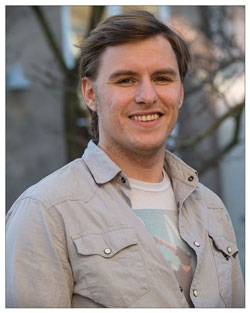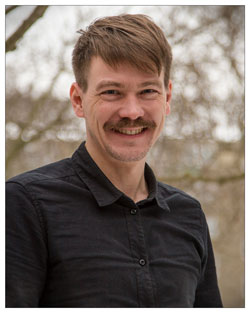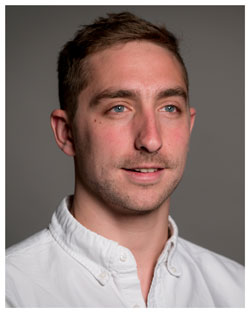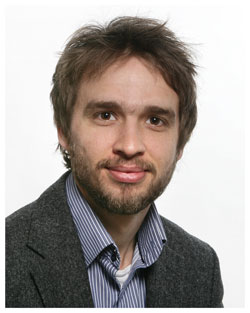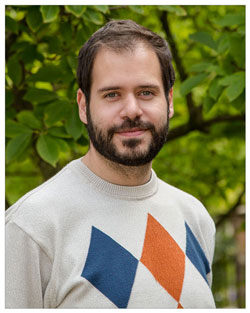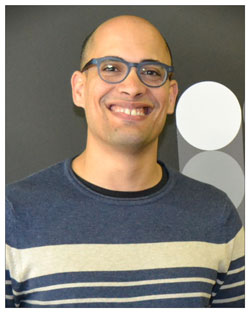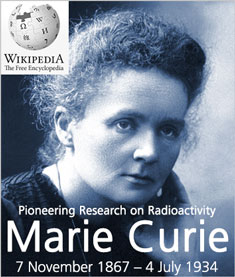Niels Bohr Institute welcomes 6 new Marie Curie Fellows
From “Quantum Supremacy” to planet-disks interactions, the Niels Bohr Institute opens its doors to ever more scientific excellence, with 6 new Marie Curie Grants.

Out of the 1200 Marie Skłodowska-Curie Actions (MCSA) grants - approx. € 218.71 million - awarded on January 27th, Niels Bohr Institute proudly takes home 6 fellowships, for a total of € 1,3 million, so just short of 10 Million DKK.
This record may be hard to beat next year, but as Niels Obers (NBI Constituted Institute leader) puts it: “The world class research being carried out at the institute proves us that we have an increasing potential to attract external funding, including from the European H2020 program. It has been our strategy to attract the absolute best scientists and create a research environment to match. This strategy is bearing fruit, and I believe that this tendency will carry on throughout the next many years, so we have high expectations for the next rounds of MCSA grants.”
According to the MSCA officials, these are “researchers with the highest potential to make a game-changing impact on our society and economy”. You can read below about our grant awardees, their projects, their goals, their dreams.
Matthew Broome, Quantum Photonics group (1.5 millon DKK)
The grant will allow Matthew to pursue his ultimate goal of demonstrating so-called ‘quantum supremacy’: A physical quantum computing device that outperforms any known classical computing machine. To prove this, Broome and his colleagues will carry out an experiment known as “Boson sampling”: The interference of many single-photon modes across a large interferometric network. It is strongly believed that no classical algorithm could efficiently simulate such an experiment, and thereby performing it in the laboratory will provide the strongest evidence to date that quantum mechanics permits computation beyond what is possible classically.
Matthew is a postdoctoral research fellow at the Quantum Photonics group, headed by Peter Lodahl. Matthew is also working towards establishing a network of external scientific collaborators that will bring a suite of exciting new technologies to the quantum photonics group at NBI.
Tim Schröder, Quantum Photonics group (1.5 millon DKK)
The MSCA Individual fellowship project OPHOCS – On-chip Photonic Cluster State Generation - focuses on the generation of a very special form of light, so-called cluster states of single photons. Such a cluster state, in which all photons are entangled with each other, can be used for photon-based quantum information processing. The light source, a self-assembled semiconductor quantum dot, will be integrated into an on-chip nanophotonic circuit.
The goal of the project is to generate for the first time photonic cluster states with more than 10 photons.
Tim has been an Assistant Professor at the Quantum photonics group at the Niels Bohr Institute Since July 2016. His research focuses on spin-photon interfaces for quantum networks and photonic cluster state generation.
Jacques Carolan, Quantum Photonics group (2 million DKK)
Jacques’ research develops novel ways of generating, manipulating and detecting individual particles of light, towards building new kinds of quantum machines. Precise control of individual quantum systems enables quantum technologies which promise to revolutionize many aspects of human endeavour, e.g., quantum simulation to design new drugs and materials, processing vast data sets for machine learning, and ultra-secure communication networks. However, owing to the inherent fragility of wielding quantum systems, significant technological breakthroughs are required.
Jacques’ goal is to provide the necessary breakthroughs that will turn these dreams into reality: “This Marie Skłodowska-Curie Global Fellowship will enable me to leverage state-of-the-art silicon photonics fabrication processes and solid-state quantum emitters, to develop very-large-scale quantum photonic processors capable of solving intractable problems in quantum chemistry and machine learning.”
Dr. Jacques Carolan a postdoctoral researcher at the Quantum Photonics Laboratory at MIT, which he joined in 2016 after completing his PhD at the Centre for Quantum Photonics in the University of Bristol. He will join Peter Lodahls Quantum Photonics group in 2019.
Malcolm Connolly, Center for Quantum Devices (1.5 million DKK)
Malcolm’s research is about understanding the quantum behavior of new
materials at very low temperatures and seeing how to exploit their
properties in novel devices for applications in computing and sensing.
“My 2-year Marie Curie fellowship at the NBI is designed to give me a deeper understanding of how to control quantum
systems, with the hope of using the latest ideas in quantum condensed matter physics to underpin new types of practical devices. It is also a fantastic opportunity to work with leaders in the field and forge new collaborations.”
Malcolm built up his own group at the Cavendish Laboratory in Cambridge, and just started at the Niels Bohr Institute last week as a postdoctoral researcher, on Charles Marcus’ team. Welcome to NBI Malcolm!
Pablo Benítez Llambay, Theoretical Astrophysics group (1.5 million DKK)
So far planet migration has been extensively studied on relatively simple scenarios. Pablo’s goal is to develop novel numerical techniques to advance our current understanding of planet-disk interactions.
“This grant will allow me to go further in my research, enabling me to explore the impact of more detailed physics in our current understanding of planet migration processes. My research program has the potential to produce a leap forward in our understanding of how planetary orbits evolve, not only by producing better models to understand exoplanets observations but also by improving current formation models of our own Solar System”.
Pablo is a post-doctoral fellow at the Theoretical Astrophysics group, and interacts with the members of the Computational Astrophysics Group at NBI, as well as with researchers from the Center for Star and Planet Formation hosted by the Natural History Museum of Denmark. All in all, these interactions provide a fertile ground for collaborations and will be a key asset for developing his research program during the Marie Curie Fellowship.
Tiago Cordeiro, X-Ray and Neutron Science group (1.5 million DKK)
Membrane proteins play essential roles in all living organisms and are primary drug targets.
With a highly interdisciplinary focus on structure, dynamics and function, The MSCA-DYNAMO project aims to establish a unique experimental and computational platform to facilitate studies of structural dynamics of biologically relevant membrane receptors and their complexes.
Research in the Dynamic Structural Biology (DSB) lab is focused on discovering the underlying principles of protein disorder in biology and disease. Nuclear magnetic resonance (NMR) and solution small-angle scattering (X-rays and neutrons, i.e. SAXS and SANS) are used to provide unique and alternative insights into structural dynamics and interactions of structurally disordered proteins underlying key biological processes, such as bacterial pathogenesis and chronic infections.
Since he obtained the Marie Curie fellowship, Tiago got offered a position as assistant professor at the Instituto de Tecnologia Química e Biológica António Xavier (ITQB-NOVA), a scientific research and advanced training institute at the NOVA University in Lisbon.

